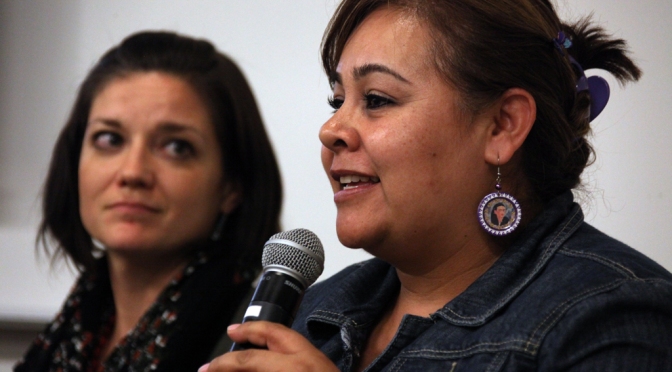On Sept. 2, USF held its’ annual Involvement Fair. Music was playing in Harney Plaza as hundreds of students made their way through the various tables. The music blasting throughout campus contained profane words that would be banned in some publications on campus. Before the Involvement Fair, there were a series of incidents in Crossroads Cafe in which student employees were playing their personal iPods. When Crossroads management became aware that profane words were being played, the students were asked not to continue playing music with bad words in the lyrics. According to Bon Appetit Director Holly Winslow, a member of the leadership team told the workers not to play the music, but they continued. Crossroads has since banned the playing of all personal iPods during business hours.
Why were the DJ’s in Harney Plaza allowed to project profanity-laced music louder and to a larger group of people in Harney Plaza when the Crossroads workers were not? Were there any warnings given to DJ’s at the Involvement Fair?
The ambiguity and double-standard in restrictions like these make it hard for students to know when and where their music is appropriate to play and when they should wait until they are in a private place.
Another issue is, who is this music offending? Students were not complaining about the music’s words at the Involvement Fair. Instead, members of student groups were dancing on chairs, tables, and in surrounding areas. People were equally not offended during the incident in Crossroads. We are adults and should be treated as such. If students are not offended by this music, whom is the administration protecting?
The student press has had conflict with the administration when deciding whether or not to publish a story. If the wrong decision is made, there lingers the possibility of getting a reprehensive letter or having a special visit from the highest USF officials for a scolding session.
Chris Begley, the executive producer of USFtv, says he and his staff play it safe when airing content on TV. “Before we air something I think about if Father Privett or Margaret Higgins were in the cafeteria, would they approve?” said Begley. He also said that USFtv has not had a major issue with the administration trying to control their content and the USFtv staff makes sure they do not air unnecessary curse words. The Foghorn is familiar with complaints about content or certain profane words printed in the paper. At times, the Foghorn has received emails from the administration questioning the appropriateness of some of the content printed. An article has never been kept from print, but the potential for a negative administrative response makes campus gatekeepers wary of printing a piece that could offend.
But other campus publications such as The Ignation, which prints original poems and stories by students in an annual issue, sometimes prints profane words and edgy stories. The Ignation is deemed art and the authors and editors have more leeway in the content they print. If this is the case, why is the music played in Crossoroads censored? Does it not fall within the same art exemption?
Students hold peaceful demonstrations in Harney Plaza, various residence halls, and other public spaces on campus. The Foghorn, USFtv, KUSF and all other student-run media outlets on campus serve as forums for student voices and offer information about our school’s community. Students are free to practice whichever religion they choose to, despite USF being a Jesuit institution.
Still, there is a gray area of restrictions on this campus that make students question whether they are exercising their rights or violating school policy.
Preserving Jesuit values is important, but if the administration is not consistent in their censorship rules and when and where they apply, students may restrain themselves before expressing themselves. Student should not have to “play it safe” for fear of punishment. Student content will not be interesting or original. It will be watered down, and will lack the unique personality of all the individual artists that make USF a free and diverse campus.

